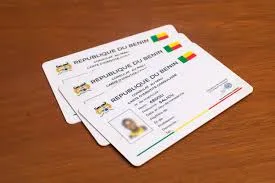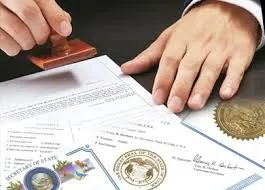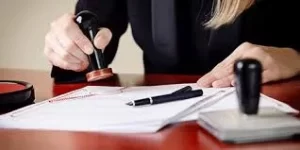Are you planning to reside, work, or travel in Benin Republic? A consular card can be your best companion! It’s not just a document; it’s a gateway to legal security, access to vital services, and peace of mind while living abroad.
This article dives into everything you need to know about how to get a consular card in Benin Republic. From its significance to the step-by-step application process, this guide ensures you’re well-prepared to secure your consular card effortlessly.
Table of Contents
- What is a Consular Card?
- Why You Need a Consular Card in Benin Republic
- Importance of a Consular Card
- Eligibility for Obtaining a Consular Card
- Step-by-Step Guide on How to Get a Consular Card in Benin Republic
- Frequently Asked Questions (FAQs)

How to get a Consular Card in Benin Republic
What is a Consular Card?
A consular card, also known as a consular identification card, is an official document issued by the consulate or embassy of your home country in Benin Republic. It serves as proof of your nationality and identity while living or travelling in a foreign country.
This document is particularly crucial for expatriates, travellers, and students who need a formal identification tool to access services and protect their rights abroad.
Why You Need a Consular Card in Benin Republic
If you’re a foreign national residing, studying, or working in Benin Republic, obtaining a consular card is not just an option—it’s a necessity. This essential document is a cornerstone for ensuring your rights, security, and access to essential services. Let’s dive deeper into the reasons why a consular card is indispensable:
1. Legal Identification
The consular card serves as an officially recognized form of identification within Benin Republic. It eliminates the need to carry sensitive documents like your passport everywhere, reducing the risk of losing or damaging them. This card is accepted in most administrative, governmental, and legal settings, providing a secure way to confirm your identity.
2. Access to Consular Services
Holding a consular card grants you direct access to a range of services provided by your home country’s consulate or embassy. These services include:
- Emergency assistance in situations such as natural disasters or personal crises.
- Notarial services, such as document certification or the issuance of legal paperwork.
- Replacement or renewal of lost or expired travel documents like passports.
In times of uncertainty or distress, the consular card ensures that your embassy can swiftly assist you.
3. Travel Facilitation Within Benin Republic
Travelling within Benin Republic becomes much easier with a consular card. Local authorities often require valid identification for certain activities, including:
- Registering at hotels or accommodations.
- Passing through checkpoints during intercity travel.
- Applying for permits or residency renewals.
The consular card streamlines these processes by serving as a universally accepted ID within the country.
4. Proof of Nationality
For many foreigners, proving their connection to their home country is a requirement for activities such as:
- Securing work authorization or residency permits.
- Registering for academic programs in universities or professional training institutes.
- Enrolling children in local or international schools.
The consular card acts as an official document that confirms your nationality, ensuring compliance with local regulations.
5. Protection of Rights
If you encounter legal issues, your consular card becomes a lifeline. It allows your embassy to identify you quickly and provide:
- Legal counsel or referrals to qualified lawyers.
- Mediation with local authorities to ensure your rights are upheld.
- Assistance with bail arrangements or appeals in complex situations.
This document ensures that you’re not left vulnerable in a foreign country and that you have the full backing of your nation’s diplomatic mission.
6. Simplified Access to Government and Private Services
Many government agencies, banks, and other institutions in Benin Republic require foreign nationals to present a consular card before offering services such as:
- Opening a local bank account.
- Applying for local permits or business licenses.
- Accessing healthcare facilities under certain arrangements.
Having this card in hand ensures that you can access these services without unnecessary delays.
7. Community Integration and Support
In addition to practical benefits, the consular card connects you to your community abroad. Many consulates organize cultural, educational, and social events exclusively for cardholders. These gatherings help you integrate into the local culture while maintaining ties to your home country.
Importance of a Consular Card
A consular card is far more than a piece of identification; it is a powerful document that provides critical benefits and safeguards for expatriates in Benin Republic. Whether you’re a student, a professional, or someone establishing roots in the country, the consular card is your key to accessing essential services and maintaining strong ties with your home country. Let’s explore its significance in greater detail:
1. Emergency Assistance and Protection
One of the most vital roles of the consular card is to facilitate assistance in emergencies. Life abroad comes with uncertainties, and unforeseen circumstances such as medical emergencies, accidents, legal challenges, or the loss of essential documents like your passport can be daunting.
With a consular card, your home country’s consulate can quickly identify you and provide the necessary support, such as:
- Immediate replacement of travel documents.
- Liaising with local authorities on your behalf.
- Arranging for legal representation or mediation.
- Repatriation support in extreme cases.
This access to timely aid ensures that you’re not left vulnerable during critical moments.
2. Financial Transactions and Banking
Navigating financial systems in a foreign country can be tricky, especially when banks require valid identification to open accounts or process significant transactions. The consular card simplifies these processes by acting as a trusted and recognized form of identification for:
- Opening personal or business bank accounts.
- Facilitating wire transfers or receiving funds from abroad.
- Applying for loans or credit facilities.
For expatriates planning to establish financial stability in Benin Republic, the consular card is indispensable.
3. Proof of Residency and Legitimacy
In many cases, expatriates are required to provide proof of their residency status or affiliation with their home country to access various services in Benin Republic. The consular card serves this purpose effectively, making it easier to:
- Apply for or renew residency permits.
- Enroll in schools, universities, or professional training programs.
- Secure housing, whether renting or purchasing property.
- Register for government or community-based services.
The card legitimizes your presence in the country, ensuring smooth interactions with local institutions and service providers.
4. Simplified Travel and Movement
For expatriates traveling within Benin Republic or neighboring countries, carrying a passport for identification can be risky. The consular card is a safer, more practical alternative that simplifies:
- Check-ins at hotels and accommodations.
- Passage through security checkpoints during intercity travel.
- Applications for short-term permits or visas for regional trips.
This convenience makes the card an essential travel companion.
5. Strengthened Connection to Your Home Country
Having a consular card keeps you closely connected to your home country even when you’re living abroad. This connection offers significant benefits, such as:
- Notifications about elections, policies, or legal updates relevant to expatriates.
- Invitations to cultural, social, or educational events organized by the consulate.
- Access to community programs that promote networking and support among nationals.
These benefits ensure you remain informed and engaged with your country’s affairs, no matter where you are.
6. Legal Protection and Advocacy
Legal issues can arise unexpectedly, and as a foreign national, navigating the legal system in Benin Republic might be challenging. The consular card ensures that your consulate is notified of your situation and can:
- Mediate with local authorities to protect your rights.
- Provide access to legal assistance or advice.
- Assist in disputes related to employment, housing, or other matters.
With a consular card, you have the assurance that your home country stands ready to support and advocate for you when needed.
7. Social Inclusion and Community Support
Living abroad can feel isolating, but the consular card connects you to a vibrant network of fellow expatriates. Many consulates organize events, forums, and workshops exclusively for cardholders, which can help you:
- Build meaningful relationships with others from your home country.
- Gain access to career opportunities or collaborations within the community.
- Stay informed about resources or programs tailored to expatriates.
This sense of belonging enhances your experience of living in Benin Republic.
Eligibility for Obtaining a Consular Card
To obtain a consular card in Benin Republic, you must meet specific eligibility criteria. Typically, you need to:
- Be a citizen of the country whose consulate is issuing the card.
- Be residing, studying, or working in Benin Republic.
- Provide proof of nationality and identity (passport, birth certificate, or national ID).
Some consulates may have additional requirements depending on their internal regulations.
Steps for Getting a Consular Card in Benin Republic

Obtaining your consular card is straightforward if you follow the outlined steps and prepare all necessary requirements. Below are the steps to guide you through the process:
Step 1: Gather All Required Documents
Ensure you have all the required details and documents, as listed below:
- Personal details (e.g., name, date of birth, addresses in Nigeria and Benin).
- Contact information (phone number, email, WhatsApp number).
- Educational qualifications.
- Next of kin details.
- National Identification Number (NIN).
- A clear passport photo with a white background.
- Your signature written on a white A4 paper.
Step 2: Take a Proper Passport Photo
Your passport photo must meet these requirements:
- A clear, recent photograph of your face.
- Taken against a white background.
- Ensure it is professional and properly cropped.
Step 3: Prepare Your Signature
- Use a white A4 paper to sign your name.
- Ensure your signature is clear and legible.
- Take a clear photograph of the signature to include with your application.
Step 4: Visit the Consulate
- Head to your country’s consulate in Benin Republic with all required documents.
- Submit your application, ensuring all details are accurate.
Step 5: Pay the Required Fees
- Confirm the fees associated with processing the consular card.
- Pay through the specified payment methods provided by the consulate.
Step 6: Await Processing and Collection
- After submission, the consulate will process your application.
- Processing typically takes 3 to 7 working days.
- Once approved, you will be notified to collect your consular card.
Note:
For your signature and photo requirements:
- Your signature must be signed on white A4 paper, then photographed or scanned clearly.
- Your passport photo must have a white background and adhere to standard passport photo requirements.
Frequently Asked Questions (FAQs)
Q1: What is the validity period of a consular card in Benin Republic?
The validity varies by consulate but typically ranges from one to five years. Always check with your consulate for specific details.
Q2: Can I use my consular card as a travel document?
No, a consular card is not a substitute for a passport or visa. It serves as an ID and proof of nationality but cannot replace travel documents.
Q3: How much does it cost to get a consular card?
Fees differ based on the issuing consulate. Contact your consulate for up-to-date pricing.
Q4: Is a consular card mandatory in Benin Republic?
While not mandatory, it is highly recommended for expatriates and visitors to ensure access to consular support and seamless legal processes.
Q5: Can minors apply for a consular card?
Yes, minors can obtain a consular card, but their application must be submitted by a parent or legal guardian.
Conclusion: Get Your Consular Card Today!
Knowing how to get a consular card in Benin Republic can save you from unnecessary stress and ensure your safety and comfort while living or traveling abroad. This vital document offers a range of benefits, from legal identification to consular support in emergencies.
Don’t wait until it’s too late—reach out to your country’s consulate in Benin Republic today and start your application process! Ensure a smoother, more secure experience by securing your consular card
Ready to Get Your Consular Card? Let Us Help You!

Don’t wait any longer to secure your consular card in Benin Republic. At Campus Benin, we provide expert guidance and step-by-step support to ensure a hassle-free application process.
Whether you need assistance with document preparation, submission, or understanding the requirements, Campus Benin is here to help you every step of the way.
👉 Contact Campus Benin Today! Let us help you process your consular card
📞 Call: [+22994711553] 📞 WhatsApp: [+22953836082]
🌐 Visit: [campusbenin.org]
Get started now and have your consular card ready in just 3 to 7 working days!
See More Related: https://campusbenin.org/how-to-authenticate-a-b-sc-certificate-in-benin/



